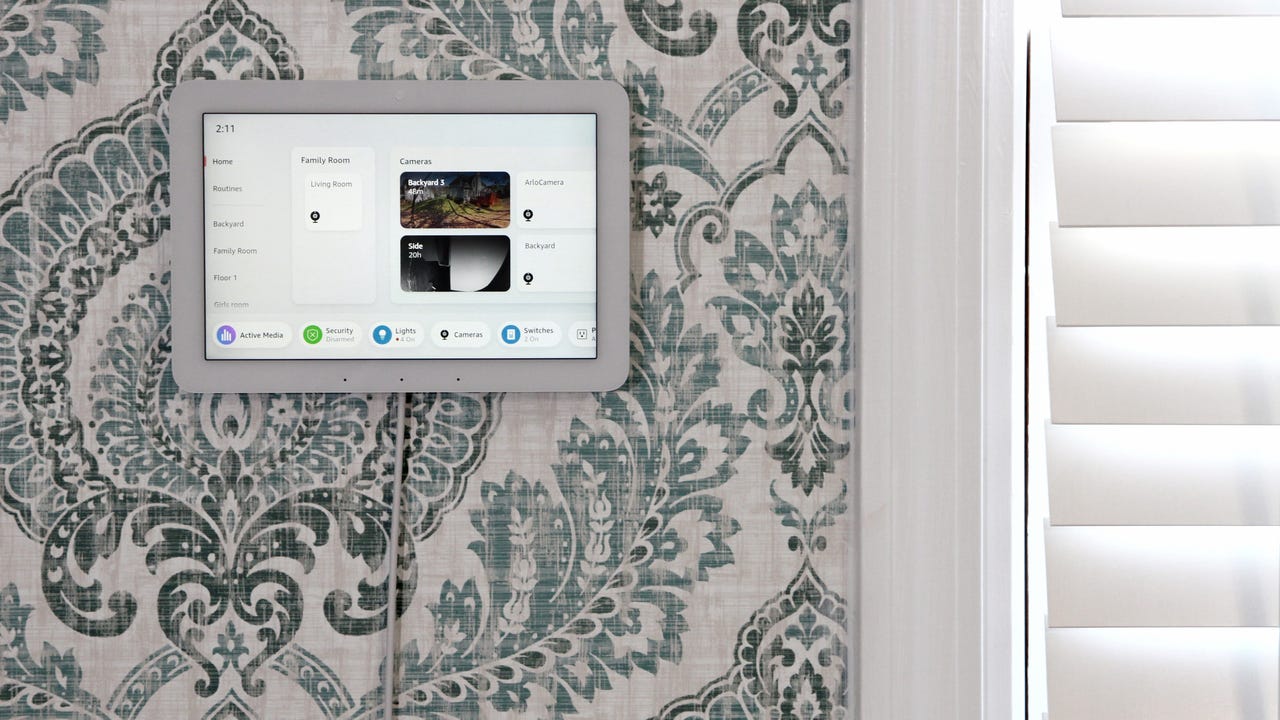'ZDNET Recommends': What exactly does it mean?
ZDNET's recommendations are based on many hours of testing, research, and comparison shopping. We gather data from the best available sources, including vendor and retailer listings as well as other relevant and independent reviews sites. And we pore over customer reviews to find out what matters to real people who already own and use the products and services we’re assessing.
When you click through from our site to a retailer and buy a product or service, we may earn affiliate commissions. This helps support our work, but does not affect what we cover or how, and it does not affect the price you pay. Neither ZDNET nor the author are compensated for these independent reviews. Indeed, we follow strict guidelines that ensure our editorial content is never influenced by advertisers.
ZDNET's editorial team writes on behalf of you, our reader. Our goal is to deliver the most accurate information and the most knowledgeable advice possible in order to help you make smarter buying decisions on tech gear and a wide array of products and services. Our editors thoroughly review and fact-check every article to ensure that our content meets the highest standards. If we have made an error or published misleading information, we will correct or clarify the article. If you see inaccuracies in our content, please report the mistake via this form.
What is Matter? How the connectivity standard can change your smart home

Amazon's Echo Hub is a smart home panel with Matter support.
What is Matter?
Matter is a relatively new open-source IP-based connectivity standard for smart home technology. It was announced as a joint project called CHIP (Connected Home over Internet Protocol) by the Connectivity Standards Alliance (CSA), comprised of Apple, Google, Amazon, and other tech companies. Matter runs on Wi-Fi and Thread network layers and uses Bluetooth Low Energy (BLE) for commissioning.
Consider that your devices can communicate with each other via Bluetooth -- Matter is another way for devices to connect and communicate. Unlike other connectivity protocols, Matter can be brought to older devices with over-the-air (OTA) updates, giving it far more reach. Amazon, for example, updated existing Echo devices to support Matter, and other tech companies followed suit.
Also: The best Alexa devices of 2024: Expert tested and recommended
With extensive support across technologies and manufacturers, Matter should let you natively add a SwitchBot device into your Apple HomeKit ecosystem, for example, which wasn't possible before the protocol launched.
Instead of devices having a list of all the supported home assistants they can work with, many come with a Matter logo.
When was Matter launched?
The CSA launched Matter 1.0 on October 4, 2022.
The CSA released Matter 1.1 in April 2023 with incremental improvements and Matter 1.2, with support for nine new device types, including home appliances, in October 2023.
Why was Matter created?
Matter has received much attention in the Internet of Things (IoT) arena since its announcement in late 2019. The CSA, the organization which created Matter and Zigbee, wants to make Matter the new connectivity standard for smart homes.
Since smart home devices and hubs started appearing on the market, the lack of compatibility between brands and devices has been a big problem. For years, you had to choose your home automation systems carefully, or you might end up with incompatible devices and have to juggle multiple apps to control your home.
Also: Move over, Alexa and HomeKit: A new Assistant is here to open source your smart home
The CSA aims to change that situation with Matter. This standard could diminish interoperability woes in home automation systems.
Tech companies got involved quickly. Apple's Corey Wang, a producer in Human Interface Design, mentioned Matter during Apple's Worldwide Developers Conference (WWDC 2022), pointing out the need to have more compatibility across brands in smart home devices for a truly connected home. Google added Matter-over-Thread support for its smart home hubs with Thread built-in. In 2021, Amazon announced that almost all Echo devices would support Matter and later made OTA updates to existing devices.
Also: Not into the Tesla Powerwall? You can now buy the Anker Solix X1
Since then, many other tech companies have launched smart home devices with Matter support, including Eve, Switchbot, Aqara, Govee, Roborock, and others.
What devices work with Matter?
Matter support is available for the basic function of many smart home and IoT devices. The following device types can support Matter, as of the latest 1.2 release in October 2023:
- Air conditioners (HVAC and room air conditioners)
- Air purifiers
- Air quality sensors (supported sensors can capture and report on PM1, PM2.5, PM10, CO2, NO2, VOC, CO, Ozone, Radon, and Formaldehyde)
- Bridges and hubs
- Blinds
- Dishwashers
- Fans
- Light bulbs
- Light switches
- Locks
- Outlets
- Plugs
- Refrigerators
- Robot vacuums
- Security sensors
- Shades
- Smoke and carbon monoxide alarms
- Speakers
- Televisions
- Thermostats
- Washing machines
What is a Matter controller?
A Matter controller is any device or application that controls Matter-certified devices within a network. The controller can be a smart home app, like Apple Home, or a device, like an Amazon Echo Hub.
Also: I tried a window-cleaning robot and things went surprisingly well
Matter controllers let users command devices to perform tasks, like asking your Alexa device to turn smart lights off or on, or using your Google Home to adjust the thermostat.
How does Matter benefit me?
Matter simplifies the smart home business for both manufacturers and consumers. The standard means you don't have to worry about which brands work together or which devices support a specific assistant when you choose a video doorbell or security camera.
Matter also allows you to adopt a smart home automation system, like Amazon Alexa, Apple HomeKit, or Google Home, without having to juggle extra apps on your smartphone to control the devices that are incompatible with the system.
Also: I tested Roborock's most expensive robot vacuum and found 4 reasons to buy it
Aside from universal compatibility, Matter features strong security protocols to protect smart homes from unauthorized access. The standard also makes for a simplified setup of new devices that will get easier over time, with devices being recognized and controlled by existing systems once they join a network.
Matter also makes for a reliable connection in your smart home, reducing the likelihood of devices disconnecting or not responding.
